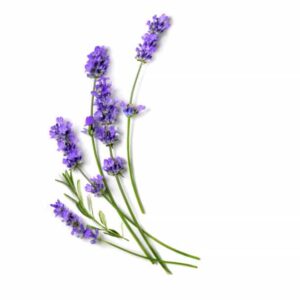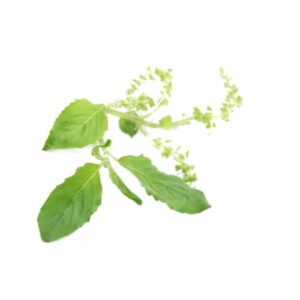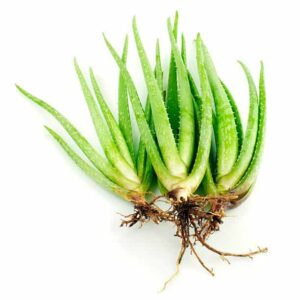Welcome to our page dedicated to exploring the top 5 plants for better sleep! If you struggle with falling asleep or experience restless nights, incorporating certain plants into your sleep routine can make a remarkable difference. Nature has provided us with a variety of botanical treasures that possess sleep-promoting properties and can help improve the quality of our sleep.
In this article, we will delve into the fascinating world of plants and highlight the top five species known for their ability to enhance sleep and create a tranquil sleep environment. Whether you are seeking natural remedies or simply looking to bring more greenery into your bedroom, this compilation will provide you with valuable insights and practical suggestions for incorporating these sleep-inducing plants into your life. Get ready to discover the power of plants and unlock the secret to a restful and rejuvenating slumber!
The Sleep-Promoting and Sleep Quality-Enhancing Properties of Lavender
Sleep plays a vital role in our overall well-being, and obtaining a restful night’s sleep is essential for optimal health. One plant that has gained significant attention for its potential sleep-promoting properties is lavender (Lavandula spp.). Lavender has been used for centuries in traditional medicine and aromatherapy, and recent scientific studies have begun to shed light on its effects on sleep. This article aims to explore the scientific evidence behind lavender’s ability to promote a restful sleep and enhance sleep quality.
Calming Effects on the Nervous System:
Lavender contains bioactive compounds, such as linalool and linalyl acetate, which have been found to possess anxiolytic and sedative properties. Research suggests that these compounds interact with neurotransmitters in the brain, including GABA (gamma-aminobutyric acid), which helps regulate anxiety and promotes relaxation. By modulating GABA activity, lavender may help calm the nervous system, leading to a more peaceful and easier transition into sleep.
Reduction of Stress and Anxiety:
Stress and anxiety are common factors that can disrupt sleep. Lavender has been shown to have anxiolytic effects, potentially reducing stress and anxiety levels. In a study published in the Journal of Alternative and Complementary Medicine, inhalation of lavender essential oil was found to significantly decrease anxiety levels in participants and improve sleep quality. These findings suggest that lavender’s anxiolytic properties may contribute to its sleep-enhancing effects.
 Impact on Sleep Architecture:
Impact on Sleep Architecture:
Sleep architecture refers to the pattern and structure of sleep stages throughout the night. Lavender has been reported to influence sleep architecture by increasing slow-wave sleep (SWS) and enhancing deep sleep. SWS is crucial for physical restoration and rejuvenation. In a study published in the journal Frontiers in Behavioral Neuroscience, inhalation of lavender essential oil increased SWS and promoted a deeper sleep state in participants. These findings highlight lavender’s potential to improve sleep quality by influencing the sleep stages essential for overall rejuvenation.
Effects on Insomnia and Sleep Disorders:
Insomnia and sleep disorders can significantly impact an individual’s sleep quality. Lavender has been investigated for its potential in alleviating insomnia symptoms and improving sleep in individuals with sleep disorders. A systematic review and meta-analysis published in the Journal of Evidence-Based Integrative Medicine found that lavender aromatherapy improved sleep quality and reduced insomnia symptoms in various populations, including adults, older adults, and women with postpartum depression. These findings suggest that lavender could be a useful adjunct therapy for managing sleep disorders.
Aromatherapy and Environmental Factors:
The olfactory system, responsible for our sense of smell, plays a crucial role in our sleep-wake cycle and emotional responses. Aromatherapy with lavender essential oil has been shown to have a positive impact on sleep-related environmental factors, such as reducing noise, improving air quality, and creating a relaxing atmosphere. A study published in the International Journal of Molecular Sciences demonstrated that inhaling lavender essential oil reduced blood pressure and heart rate, promoting a state of relaxation conducive to sleep.
Recipe: Lavender Infusion
Ingredients:
- 2 tablespoons dried lavender flowers
- 2 cups of water
Instructions:
- Boil two cups of water in a saucepan.
- Once the water reaches a rolling boil, remove the saucepan from heat.
- Add the dried lavender flowers to the hot water.
- Cover the saucepan with a lid and let the lavender steep for about 10 minutes.
- After steeping, strain the liquid to remove the lavender flowers.
- The resulting lavender infusion is now ready to be consumed.
Administration:
There are several ways to administer lavender for promoting restful sleep:
- Lavender Tea:
- Drink the lavender infusion as a warm cup of tea approximately 30 minutes before bedtime.
- Add a natural sweetener like honey if desired.
- Lavender Pillow Spray:
- Pour the lavender infusion into a spray bottle.
- Spritz a light mist of the lavender spray onto your pillow and bedding before sleep.
- Allow the aroma to surround you as you rest.
- Lavender Bath:
- Add the lavender infusion to warm bathwater.
- Soak in the bath for 15-20 minutes before bedtime, inhaling the calming scent.
- Lavender Inhalation:
- Pour the lavender infusion into a bowl.
- Lean over the bowl and cover your head with a towel to create a tent-like effect.
- Breathe deeply and slowly inhale the steam for several minutes.
Note:
It’s important to perform a patch test on a small area of skin before applying lavender topically to check for any adverse reactions.
Lavender offers a natural and soothing remedy for promoting restful sleep and improving sleep quality. Whether consumed as a tea, used as a pillow spray, incorporated into a bath, or inhaled through steam, lavender’s calming properties can create a tranquil environment conducive to sleep. Experiment with different administration methods to find the one that works best for you. If you have any underlying health conditions or concerns, it is advisable to consult with a healthcare professional before incorporating lavender into your sleep routine.
Conclusion:
The scientific evidence supports lavender’s potential to promote a restful sleep and enhance sleep quality. Lavender’s bioactive compounds, calming effects on the nervous system, reduction of stress and anxiety, impact on sleep architecture, and effects on insomnia and sleep disorders contribute to its sleep-enhancing properties. Whether through aromatherapy, topical application, or ingestion (under professional guidance), lavender offers a natural and soothing approach to improving sleep. Further research is warranted to elucidate the mechanisms of action and to explore optimal forms and dosages of lavender for sleep benefits.
For other uses of lavender click here
Holy Basil (Tulsi): Exploring Its Properties in Promoting Restful Sleep and Improving Sleep Quality
Sleep is an essential aspect of our overall well-being, and the quality of our sleep greatly impacts our daily lives. Many individuals experience difficulties falling asleep or maintaining a restful sleep. While various factors contribute to sleep-related issues, the use of natural remedies, such as holy basil (Tulsi), has gained attention for its potential to promote better sleep. This article aims to explore the properties of holy basil and its scientific basis in promoting restful sleep and improving sleep quality.
Adaptogenic Effects:
Holy basil, scientifically known as Ocimum tenuiflorum or Ocimum sanctum, belongs to the Lamiaceae family and is native to the Indian subcontinent. It is classified as an adaptogen, a term used for substances that help the body adapt to stressors and promote overall well-being. Holy basil contains compounds like eugenol, rosmarinic acid, and ocimumosides, which possess anxiolytic and stress-reducing effects. By reducing stress levels, holy basil can indirectly contribute to a calmer state conducive to better sleep.
Sedative and Relaxant Properties:
Holy basil is also known for its sedative and relaxant properties. It acts as a natural muscle relaxant and has mild sedative effects, which can help induce a state of relaxation and calmness before bedtime. The compounds present in holy basil, such as eugenol and linalool, contribute to its sedative properties.
Anti-inflammatory and Antioxidant Effects:
Inflammation and oxidative stress can disrupt sleep patterns and affect sleep quality. Holy basil possesses anti-inflammatory and antioxidant properties due to its rich phytochemical composition. The antioxidants present in holy basil help combat oxidative stress and reduce inflammation, promoting a more relaxed state that is conducive to better sleep.
 Recipe: Holy Basil Infusion
Recipe: Holy Basil Infusion
Ingredients:
- 1 teaspoon of dried Holy Basil leaves or 3-4 fresh Holy Basil leaves
- 1 cup of water
Instructions:
- Boil the water in a saucepan.
- Add the dried Holy Basil leaves or fresh Holy Basil leaves to the boiling water.
- Reduce the heat to low and let it simmer for about 5 minutes.
- Turn off the heat and cover the saucepan.
- Allow the infusion to steep for an additional 5 minutes.
- Strain the liquid into a cup, discarding the basil leaves.
- Optionally, you can add honey or a natural sweetener to enhance the taste.
Administration:
- Timing: It is recommended to consume Holy Basil infusion approximately 30 minutes to an hour before bedtime.
- Dosage: Start with a small cup (about 1/2 to 1 cup) of Holy Basil infusion and assess its effects on your sleep. You can adjust the dosage based on your personal preference and tolerance.
- Relaxation Routine: Create a calming environment in your bedroom by dimming the lights, minimizing noise, and engaging in relaxing activities such as reading or gentle stretching. Sip the Holy Basil infusion while engaging in these soothing activities.
- Consistency: For optimal results, make Holy Basil infusion a regular part of your bedtime routine. Consistent consumption over time may yield more noticeable benefits in promoting restful sleep.
Precautions:
- Consult with a healthcare professional if you are pregnant, breastfeeding, or have any underlying medical conditions.
- Holy Basil may interact with certain medications, so it is advisable to consult with a healthcare professional if you are taking any medications or have specific concerns.
- It’s important to note that individual responses to herbs can vary, and it may take time to observe noticeable effects on sleep. Patience and consistency are key.
Holy Basil, or Tulsi, is a revered herb known for its potential to promote restful sleep and enhance sleep quality. By incorporating a Holy Basil infusion into your bedtime routine, you can experience the soothing and calming effects of this herb. Remember to consult with a healthcare professional if you have any specific health concerns or questions regarding the use of Holy Basil for sleep improvement. Enjoy the tranquil benefits of Tulsi and embrace a rejuvenating night’s sleep.
Conclusion:
Holy basil (Tulsi) has shown promising properties in promoting restful sleep and improving sleep quality. Its adaptogenic effects, sedative and relaxant properties, and anti-inflammatory and antioxidant effects contribute to its potential sleep-promoting benefits. However, further research is necessary to fully understand the mechanisms of action and establish optimal dosages for achieving the desired sleep-related effects in humans.
It is important to note that individual responses to holy basil may vary, and it is advisable to consult with a healthcare professional before incorporating it into your sleep routine, particularly if you have underlying medical conditions or are taking medications. Additionally, maintaining a healthy sleep environment and practicing good sleep hygiene habits, such as establishing a regular sleep schedule and reducing exposure to electronic devices before bedtime, are essential for achieving restful sleep.
References:
- Kumar H, et al. (2014). Ocimum sanctum Linn. (Tulsi) ethanol leaf extract protects against 7,12-dimethylbenz(a)anthracene-induced genotoxicity, oxidative stress, and imbalance in xenobiotic-metabolizing enzymes. Journal of Environmental Pathology, Toxicology and Oncology, 33(1):27-40.
- Singh S, et al. (2014). An overview on holy basil (Ocimum sanctum L.): Impact on human health. Journal of Applied Pharmaceutical Science, 4(1):117-123.
- Cohen MM. (2014). Tulsi – Ocimum sanctum: A herb for all reasons. Journal of Ayurveda and Integrative Medicine, 5(4):251-259.
- Modi MB, et al. (2014). Phytochemical screening and anti-inflammatory activity of Ocimum sanctum Linn. Research Journal of Medicinal Plant, 8(4):212-218.
Aloe Vera: Its Properties in Promoting Restful Sleep and Enhancing Sleep Quality
Sleep is an essential aspect of maintaining overall well-being, and the quality of sleep directly impacts our physical and mental health. Many individuals struggle with sleep-related issues, such as insomnia or poor sleep quality. In the quest for natural remedies, Aloe Vera has emerged as a plant with potential properties to promote restful sleep and enhance sleep quality. This article explores the scientific evidence behind Aloe Vera’s beneficial effects on sleep.
Relaxing and Anxiolytic Effects:
Aloe Vera is known for its soothing and calming properties. Research suggests that Aloe Vera exhibits anxiolytic effects, reducing anxiety and promoting relaxation, which can contribute to falling asleep more easily. A study published in the journal Phytotherapy Research found that Aloe Vera extract significantly reduced anxiety levels in animal models, indicating its potential as a natural relaxant.
Anti-Inflammatory and Antioxidant Effects:
Inflammation and oxidative stress can disrupt sleep patterns and impair sleep quality. Aloe Vera contains various bioactive compounds, including vitamins, minerals, and polyphenols, known for their anti-inflammatory and antioxidant properties. By reducing inflammation and oxidative stress, Aloe Vera may help create a favorable internal environment for better sleep.
Detoxifying Air Quality:
Indoor air pollution can negatively impact sleep quality. Aloe Vera has been recognized as an effective air purifier. The plant releases oxygen at night and helps remove harmful airborne toxins, such as formaldehyde and benzene, improving the quality of the air in the bedroom. Cleaner air promotes better respiratory health and facilitates uninterrupted sleep.
Regulation of Circadian Rhythm:
Aloe Vera contains a variety of bioactive compounds that can influence the regulation of the body’s internal clock, known as the circadian rhythm. Studies have suggested that Aloe Vera may help regulate the secretion of melatonin, a hormone responsible for promoting sleep. By promoting a balanced circadian rhythm, Aloe Vera can assist in establishing a healthy sleep-wake cycle.
 Enhanced Digestive Health:
Enhanced Digestive Health:
Digestive issues, such as acid reflux or gastrointestinal discomfort, can interfere with sleep quality. Aloe Vera has been used traditionally to support digestive health and alleviate gastrointestinal disturbances. By soothing the digestive system, Aloe Vera may reduce the likelihood of sleep disturbances caused by digestive discomfort, thus promoting uninterrupted sleep.
Recipe for Aloe Vera Sleep Aid:
Ingredients:
- 1 fresh Aloe Vera leaf
- 1 cup of water
Instructions:
- Selecting and Preparing the Aloe Vera Leaf:
- Choose a mature, healthy Aloe Vera leaf that is firm and plump.
- Carefully cut the leaf from the base of the plant using a clean knife or scissors.
- Rinse the leaf thoroughly with water to remove any dirt or debris.
- Extracting Aloe Vera Gel:
- Place the rinsed Aloe Vera leaf vertically on a cutting board.
- Use a sharp knife to slice off the thorny edges of the leaf on both sides.
- Make a lengthwise incision along the outer layer of the leaf, exposing the translucent gel inside.
- Carefully scoop out the gel using a spoon and transfer it to a clean container.
- Preparing Aloe Vera Sleep Aid:
- In a small saucepan, bring 1 cup of water to a boil.
- Once the water reaches a rolling boil, remove it from heat.
- Add 1-2 tablespoons of freshly extracted Aloe Vera gel to the hot water.
- Stir well until the gel dissolves completely in the water.
Administration and Usage:
- Consumption:
- Allow the Aloe Vera sleep aid mixture to cool down to room temperature.
- Consume the mixture approximately 30 minutes before bedtime.
- Start with a small quantity (around half a cup) and adjust the dosage as per individual preference and tolerance.
- It is advisable to consult with a healthcare professional or herbalist for personalized dosage recommendations.
- Considerations:
- Aloe Vera may have laxative effects for some individuals. If you experience any digestive discomfort or diarrhea, discontinue use or reduce the dosage.
- Ensure that you are not allergic to Aloe Vera before consuming it. Perform a patch test on a small area of your skin and wait for any adverse reactions before using it internally.
- Pregnant women, breastfeeding mothers, and individuals with underlying health conditions should consult a healthcare professional before using Aloe Vera as a sleep aid.
Aloe Vera, when consumed as a sleep aid, may potentially contribute to promoting restful sleep and improving sleep quality. However, individual responses may vary, and it is important to consider personal tolerance and consult with a healthcare professional before incorporating Aloe Vera into your sleep routine. Additionally, it is crucial to ensure the quality and purity of the Aloe Vera used.
Conclusion:
Aloe Vera exhibits several properties that can contribute to promoting restful sleep and enhancing sleep quality. Its relaxing and anxiolytic effects, anti-inflammatory and antioxidant properties, air-purifying capabilities, regulation of circadian rhythm, and support for digestive health collectively contribute to creating a conducive environment for a good night’s sleep. While further research is needed to explore the specific mechanisms underlying these effects, incorporating Aloe Vera into a sleep routine may be a natural and beneficial way to improve sleep quality.
It is important to note that individual experiences may vary, and it is recommended to consult with a healthcare professional for personalized advice, especially if experiencing chronic sleep issues or concerns related to sleep health.
Dandelion (Taraxacum officinale): A Natural Aid for Restful Sleep and Improved Sleep Quality
Sleep plays a crucial role in maintaining overall health and well-being. However, many individuals struggle with sleep-related issues, such as insomnia or poor sleep quality. While several remedies exist, one natural and scientifically studied option is the dandelion plant (Taraxacum officinale). Widely considered a weed, dandelion possesses unique properties that can promote restful sleep and enhance sleep quality. This article explores the scientific evidence behind the sleep-enhancing properties of dandelion.
Sedative Effects:
Dandelion has long been used in traditional medicine systems, such as Ayurveda and Traditional Chinese Medicine, for its sedative properties. Scientific studies have identified specific compounds in dandelion, including sesquiterpene lactones and flavonoids, which exhibit sedative effects. These compounds interact with neurotransmitters and receptors in the central nervous system, promoting relaxation and aiding in the induction of sleep.
Anxiolytic Properties:
Anxiety and stress are common culprits that disrupt sleep. Dandelion has been shown to possess anxiolytic (anti-anxiety) properties, which can help reduce anxiety levels and promote a calm state of mind. Studies have suggested that dandelion extracts modulate neurotransmitters, such as gamma-aminobutyric acid (GABA), in the brain, leading to anxiolytic effects. By alleviating anxiety, dandelion can contribute to a more restful and uninterrupted sleep.
Diuretic Effects:
Frequent trips to the bathroom during the night can significantly impact sleep quality. Dandelion acts as a mild diuretic, promoting urine production and assisting in flushing out excess fluids from the body. By reducing water retention, dandelion can help minimize the need for nocturnal bathroom visits, thus improving sleep continuity.
 Antioxidant and Anti-inflammatory Actions:
Antioxidant and Anti-inflammatory Actions:
Inflammation and oxidative stress are closely linked to sleep disorders. Dandelion exhibits potent antioxidant and anti-inflammatory properties, primarily attributed to its rich content of phenolic compounds and vitamins. These bioactive constituents scavenge harmful free radicals, protect against cellular damage, and inhibit the release of pro-inflammatory molecules. By reducing inflammation and oxidative stress, dandelion contributes to creating a favorable physiological environment for quality sleep.
Digestive Health:
Digestive disturbances, such as indigestion or bloating, can disrupt sleep patterns. Dandelion has traditionally been used as a digestive aid, with studies highlighting its positive effects on gastrointestinal health. By promoting healthy digestion, dandelion helps alleviate discomfort and improves overall gut function, indirectly supporting better sleep.
Recipe: Dandelion Tea
Ingredients:
- 1 tablespoon dried dandelion leaves or roots
- 1 cup of water
- Optional: honey or lemon for flavor
Instructions:
- Boil the water in a pot.
- Add the dried dandelion leaves or roots to the boiling water.
- Reduce the heat and let the mixture simmer for approximately 5-10 minutes.
- Remove the pot from heat and strain the tea to remove the dandelion leaves or roots.
- If desired, add honey or lemon to enhance the flavor.
- Allow the tea to cool slightly before consuming.
Administration Guide:
- Timing: It is recommended to consume dandelion tea approximately 30 minutes to 1 hour before bedtime. This allows ample time for the dandelion compounds to take effect.
- Dosage: Start with a small dosage and gradually increase if necessary. Begin with 1 cup of dandelion tea per evening and assess its effects on your sleep quality. You can adjust the dosage based on personal preference and response.
- Personalization: Experiment with the strength of the tea by adjusting the steeping time. If a stronger effect is desired, increase the steeping time up to 15 minutes. Conversely, if a milder effect is preferred, reduce the steeping time.
- Note: Individuals who are pregnant, breastfeeding, or have specific medical conditions should consult with a healthcare professional before incorporating dandelion tea into their sleep routine.
Additional Tips:
- Create a relaxing environment: To optimize the sleep-promoting effects of dandelion tea, ensure your sleep environment is conducive to relaxation. Dim the lights, reduce noise, and establish a soothing bedtime routine.
- Limit caffeine and electronic devices: Minimize or avoid consuming caffeine and using electronic devices close to bedtime, as these can interfere with sleep quality.
- Consistency is key: To experience the full potential of dandelion tea, it is advisable to incorporate it into your sleep routine consistently over a period of time. Monitor the effects and adjust as needed.
Dandelion tea, prepared from the leaves or roots of the Taraxacum officinale plant, offers a natural approach to promoting restful sleep and improving sleep quality. By following the provided recipe and administration guide, you can incorporate dandelion tea into your evening routine. Remember to personalize the dosage, create a relaxing environment, and maintain consistency to fully experience the potential benefits of dandelion for sleep. If you have any concerns or specific health conditions, consult with a healthcare professional before using dandelion tea as a sleep aid.
Conclusion:
Dandelion (Taraxacum officinale) offers a natural and scientifically supported approach to promote restful sleep and enhance sleep quality. Its sedative, anxiolytic, diuretic, antioxidant, anti-inflammatory, and digestive health properties collectively contribute to improving the sleep experience. While dandelion is generally safe for consumption, it is advisable to consult a healthcare professional, particularly if you are on medication or have specific health concerns. Incorporating dandelion into your sleep routine may help foster a rejuvenating and revitalizing night’s rest.
For more information about dandelion click here
The Sleep-Promoting and Sleep Quality-Enhancing Properties of Rose (Rosa spp.)

A restful and rejuvenating sleep is essential for overall well-being and cognitive functioning. Many individuals seek natural remedies to improve sleep quality, and one plant that has gained attention for its potential sleep-promoting properties is the rose (Rosa spp.). This article explores the scientific evidence surrounding the sleep-enhancing properties of roses and their potential benefits in facilitating a restful night’s sleep.
Aromatherapy and Relaxation:
Roses are renowned for their pleasant aroma, which has been found to induce relaxation and reduce stress levels. Aromatherapy involving rose essential oil has shown promising results in promoting sleep. In a study published in Complementary Therapies in Medicine, inhalation of rose oil was found to significantly decrease blood pressure, heart rate, and subjective stress levels, leading to improved sleep quality.
Sedative Effects:
Certain compounds present in roses, such as geraniol, citronellol, and nerol, possess sedative properties. These bioactive components interact with neurotransmitters in the brain, including GABA (gamma-aminobutyric acid), which is known for its calming and sleep-inducing effects. Research suggests that rose extracts or essential oil may enhance GABAergic neurotransmission, leading to sedative effects and improved sleep duration.
Anti-Anxiety and Stress Reduction:
Rose petals contain bioactive compounds that exhibit anxiolytic (anti-anxiety) and stress-reducing effects. Chronic stress and anxiety can disrupt sleep patterns, making it difficult to fall asleep or maintain deep sleep. Several animal studies have shown that rose extracts can reduce anxiety-related behaviors and normalize stress hormone levels. By alleviating anxiety and stress, roses may indirectly contribute to better sleep quality.
 Anti-Inflammatory and Pain Relief:
Anti-Inflammatory and Pain Relief:
Inflammatory conditions or chronic pain can interfere with sleep quality. Roses contain anti-inflammatory compounds, such as flavonoids and phenolic acids, that possess analgesic (pain-relieving) properties. By reducing inflammation and relieving pain, roses may alleviate discomfort, allowing individuals to achieve a more restful sleep.
Potential Neuroprotective Effects:
Recent studies have indicated that certain compounds found in roses, including flavonoids and tannins, may possess neuroprotective effects. These compounds have been shown to protect against oxidative stress, inflammation, and neuronal damage in the brain. By preserving brain health and function, roses may indirectly support optimal sleep quality and cognitive performance.
Recipe: Rose Tea Infusion
Ingredients:
- 1 tablespoon dried rose petals (organic and pesticide-free)
- 1 cup hot water
Instructions:
- Place the dried rose petals in a teapot or a heat-resistant container.
- Bring water to a boil and pour it over the rose petals.
- Cover the container and let the infusion steep for about 10 minutes.
- Strain the tea to remove the petals.
- Optionally, you can add a natural sweetener like honey or a squeeze of lemon for flavor.
Administration:
- Drink the rose tea infusion approximately 30 minutes to 1 hour before bedtime.
- To enhance the sleep-promoting effects, create a calming environment by dimming lights, reducing noise, and engaging in relaxing activities like reading or listening to soothing music.
- Take slow, deep breaths while enjoying the tea, allowing yourself to unwind and prepare for a restful sleep.
Additional Considerations:
- Use dried rose petals specifically labeled for culinary or herbal purposes, ensuring they are free from pesticides or chemicals.
- If you have any allergies or sensitivities, consult with a healthcare professional before incorporating rose tea into your routine.
- It is advisable to start with a smaller quantity of rose petals and gradually increase the amount if well-tolerated.
The simple recipe for a rose tea infusion provides an enjoyable and potentially effective means of promoting restful sleep and enhancing sleep quality. By incorporating this soothing beverage into your evening routine and creating a relaxing atmosphere, you can optimize the benefits of roses for a better sleep experience. As with any natural remedy, individual experiences may vary, and it is recommended to consult with a healthcare professional for personalized advice.
Conclusion:
While roses have long been cherished for their aesthetic appeal, their potential benefits in promoting a restful and rejuvenating sleep have gained scientific interest. The aromatic properties of roses, along with their sedative, anxiolytic, anti-inflammatory, and neuroprotective effects, contribute to their potential sleep-enhancing properties. Further research is needed to elucidate the precise mechanisms of action and optimal usage methods.
Click here if you want to see more articles from the Top 5 category
The information provided in this article is for informational purposes only and should not be considered as medical advice. Please consult with a healthcare professional or sleep specialist for personalized recommendations and guidance regarding sleep issues.


 Impact on Sleep Architecture:
Impact on Sleep Architecture:
 Recipe: Holy Basil Infusion
Recipe: Holy Basil Infusion
 Enhanced Digestive Health:
Enhanced Digestive Health:
 Antioxidant and Anti-inflammatory Actions:
Antioxidant and Anti-inflammatory Actions: Anti-Inflammatory and Pain Relief:
Anti-Inflammatory and Pain Relief: